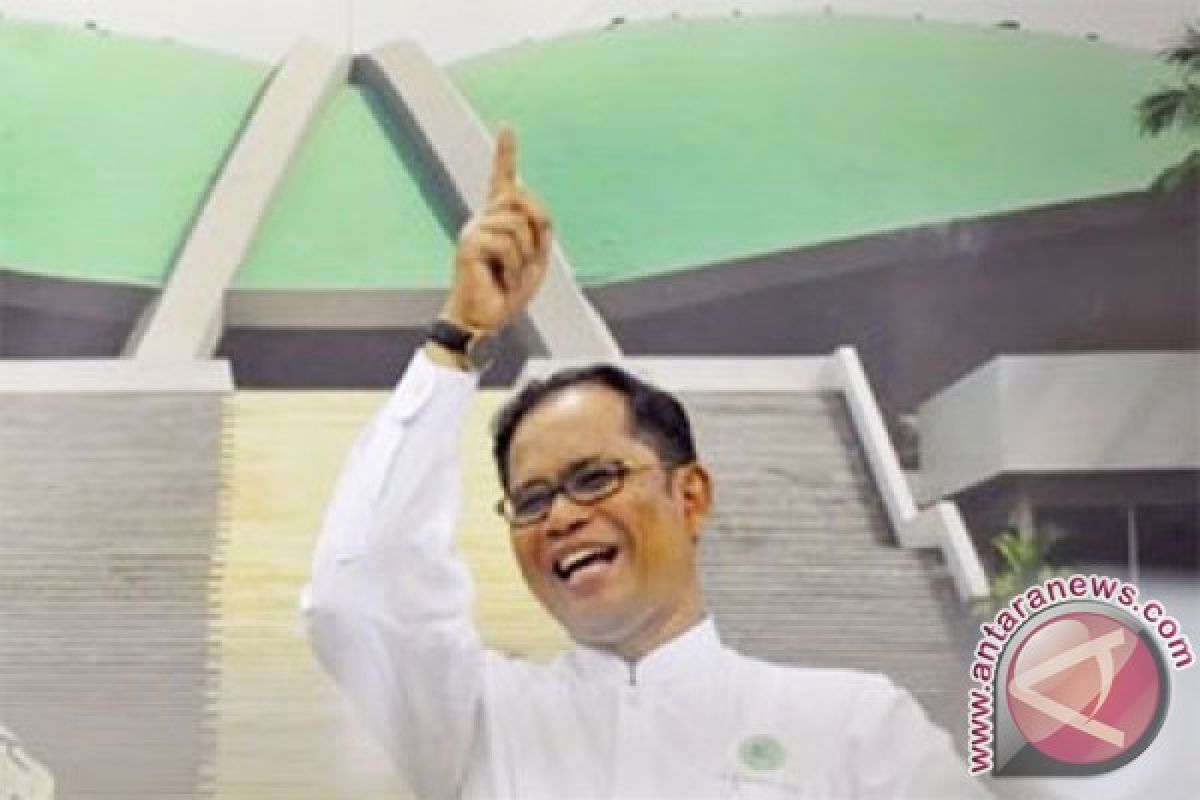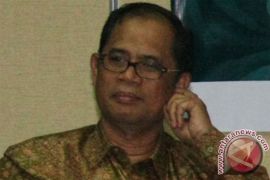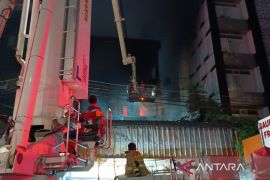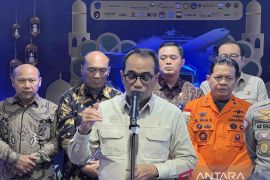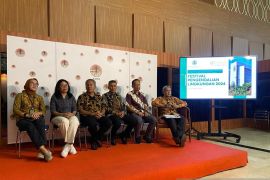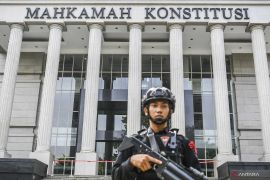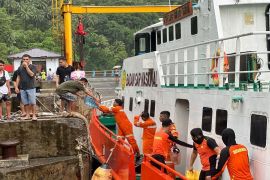What is meant by Pasar (market) here is traditional markets where the transactions of daily needs between (common) people and traders take place.
Traditional markets still exist and function well in the suburbs, small towns and villages of developing countries, including Indonesia, competing with modern markets such as department stores and hypermarkets.
Market radio programmes are infotainment in nature, combining information of prices of daily needs and their transactions and entertainments presenting local cultural performances (music and dances), involving local artists.
This programme can be carried out in the studio, markets and other public places, live or recorded.
Three main traditional market economy players in the villages and rural areas, namely producers (farmers, cattle breeders, fishermen and handycraftsmen), consumers and traders are brought in interactive dialogues on prices and transactions of daily staples and other needs moderated by presenter in the studio by phone or directly in the live site (in the market and public places).
The aim of Radio Pasar is to open information on daily staples (rice, vegetables, meat, chicken, fish and others) in the levels of producers (rice-field, garden, cattle breeding farms), traders and consumers so that producers and consumers are well informed about the basic prices and the selling prices in the market and resellers levels.
Open information of prices is expected to cut off the too long supply chains (trading), causing high prices in the level of consumers, but low prices in the level of producers.
The role of traders remains important and it is impossible to abolish traders. It is hoped that Radio Pasar could result in direct transactions between producers and consumers and market traders without too many middle traders.
The ultimate goal of Radio Pasar is the establishment of an equitable market economy system, guaranteeing fair prices for producers and consumers.
The margin or added value resulted from differences of basic prices and selling prices thus far is enjoyed more by traders, not by producers, yet burdening the consumers. The small-scale producers are many times consumers as well.
The following are some examples: chilly in the farm is bought at Rp 6,500 per kilogram, in the market is sold Rp 56,000 per kilogram. The highest price of local apple in the farm is Rp 9,000/kilogram, while in the market located just two kilometers away is Rp. 50,000/kilogram.
To cut off long supply chain.
The too different prices take place due to several factors: transportation and storage costs, security money, illegal fees, traders margins because of a too long supply chain, starting from pool traders coming to the farms, grocers in the small town and main suppliers in the city and market traders.
The Indonesian National Bureau of Statistics is quoted as reporting there are ten supply chains for rice.
An Islamic shariah economist has said, an actor of the supply chain is permitted to take a 10-15 percent margin from each transaction.
An equitable (fair) market economy system is equivalent to shariah economic system and the German Sozialmarktswirtschaft, an economic system with social responsibility.
Radio Republik Indonesia (RRI) as a public broadcasting service has the function to serve the public interest, by means of empowering producers, guaranteeing fair prices for producers and consumers, thus establishing an equitable market price system.
It is a moral obligation of RRI, which is funded by public money.
RRI introduced Radio Pasar in Yogyakarta in 2007. Radio Pasar was revitalized in 2015 by RRI Bogor in cooperation with local community radio, television and newspapers, social media, local governments, legislators, market actors, public figures, artists, boy scouts and volunteers.
Dompet Dhuafa, an Islamic philanthropic foundation, owner of the Suara Cinta (Voice of Love) community radio is a strong supporter of Radio Pasar as a means to eradicate poverty in the rural areas due to an unfair market economy system controlled tightly by traders or capitalists.
ANTARA News Agency with its branches and correspondents spreading over the country is expected to join this programme.
The non broadcasters need trainings as reporters and presenters. The non RRI stations/studios function as contributing station/studios and alternately as host station/studio.
Radio Pasar has opened opportunities for a win-win cooperation. This programme is supervised by a Board of Supervisors, involving local press/broadcaster figures to guarantee independent editorial policies.
Historically, a market place is a cultural center, a multi-melting pot of different ages, genders, races, nationalities, religions, cultures, ideologies and professions.
Traditional market has great potential to be tourist destination, especially for women and shoppers, because Pasar offers free bargaining, and there is no fixed price. Everything is open to bargain until to the lowest level.
*Presented at ABU (Asia-Pacific Broadcasting Union) General Assembly, in Bali, October 18-26,2016
** Journalist, former president directors of ANTARA and RRI, publisher/chief editor of Republika daily, initiator/founding chairman of Dompet Dhuafa (DD).
Reporter: Parni Hadi
Editor: Aditia Maruli Radja
Copyright © ANTARA 2016
